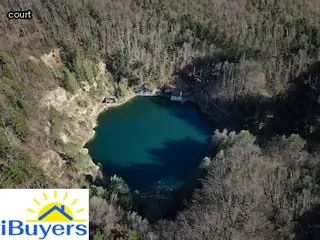The probate process in Utah is an important one to understand for anyone involved in real estate transactions. It requires the completion of a variety of steps, including the filing of court paperwork, identification of an executor or personal representative, appraisal and inventory of assets, payment of taxes and debts, distribution of assets to heirs, and closing out the estate.
These steps must be taken in order for the court to recognize the transfer of ownership from a deceased person's estate to their heirs. The probate process can also involve disputes between family members over who should receive certain assets or if certain debts should be paid out of the estate.
It is important to have a clear understanding of these processes so that all parties involved are aware of their rights and responsibilities when navigating probate and real estate in Utah.

When settling an estate in Utah, the executor plays a crucial role. This individual is responsible for following all of the instructions that were set forth in the will, organizing and filing paperwork with the court system, managing assets in an effort to pay off any debts or taxes that may be owed, and distributing any remaining balance to beneficiaries as outlined per the will.
An experienced real estate attorney can help guide an executor through this process and ensure all legal requirements are met. It is important to note that when it comes to probate and real estate matters in Utah, it is essential to seek out a qualified lawyer who understands the complexities of these laws.
With their help, an executor can navigate probate proceedings with confidence and ensure that all financial obligations are settled properly.
When it comes to estates in Utah, an executor has the responsibility of fulfilling numerous duties. Primarily, they must ensure that the decedent's estate is properly administered and managed according to Utah state law.
This includes filing a petition with the court to open probate proceedings, identifying and gathering all estate assets, notifying creditors and beneficiaries of their rights under the law, paying outstanding debts and taxes due from the estate, and distributing remaining assets to beneficiaries. An executor also has a duty to manage any real estate owned by the decedent and ensure that title is transferred as directed by the will or trust agreement.
If a sale or transfer of ownership is needed, it must be done in accordance with applicable laws in order for it to be legally binding. In addition, an executor needs to keep accurate records of all transactions related to the estate so that they can provide full accounting if required by law.
It is critical that an executor understands all applicable laws when navigating probate and real estate issues in Utah so that they can fulfill their duties properly.

The average time frame for completing probate in Utah is heavily dependent on the complexity of the estate. Generally, the process can take anywhere from six to twelve months, or longer if there are disputes among the beneficiaries or creditors.
When settling an estate through probate court, certain paperwork must be filed and deadlines must be met in order to move forward with the process. This includes submitting a petition and other necessary documents to open the probate case, and then gathering information such as creditor claims, tax returns, inventories of assets, etc.
Depending on how quickly these matters are attended to by the executor of the estate, as well as any potential disputes that may arise during this time, will ultimately determine how long it takes to complete probate in Utah.
Navigating probate and real estate in Utah can be a complicated process, especially for those who are unfamiliar with the laws and regulations of the state. As such, it is important for individuals to understand the liabilities of an executor under Utah law when dealing with probate and real estate.
Executors have a number of duties and responsibilities that must be fulfilled in order for the process to go smoothly. The most notable of these responsibilities include filing any required paperwork with the appropriate Office of Probate, ensuring that all debts are paid off from the estate, distributing assets according to the wishes of the deceased, and providing an accounting within three years after closing the estate.
Additionally, executors must ensure that all taxes related to the estate are paid on time and may even need to appear before a court if disputes arise regarding the will or other legal matters related to probate or real estate. Although serving as an executor can be a challenging task, understanding one's liabilities under Utah law is essential for anyone considering taking on this role.

In the state of Utah, probate cases must include all assets owned by the decedent at the time of death. This includes real property such as land, homes, and buildings; personal property like vehicles, jewelry, art, and collectibles; bank accounts; stocks and bonds; life insurance policies; and other investments.
If the deceased had any debts or liabilities at the time of death, they must also be accounted for in the probate case. Important documents that must be included are any wills or trusts created by the deceased prior to their passing.
As a guide to navigating probate and real estate in Utah, it is important to account for all assets when handling a probate case.
When it comes to navigating probate and real estate in Utah, understanding the legal intricacies of power of attorney documents is an important part of the process. In many cases, a power of attorney document can override the probate requirements that would ordinarily be put into place following the passing of an individual.
It is critical to understand how these documents work and their implications in order to make the best decisions for all involved parties. Power of attorney documents must be carefully crafted and agreed upon by both the agent and principal before they are valid in Utah.
Additionally, if any changes need to be made once drawn up, those amendments must also meet legal standards in order for them to be considered valid. In some cases, a court can challenge a power of attorney document if it does not meet certain criteria or if there is evidence that it was created under fraudulent circumstances.
It is important to have a thorough understanding of local regulations before signing a power of attorney document so as to ensure that all parties fully understand their rights and responsibilities under the law.

Navigating probate and real estate in Utah can be a daunting process, but understanding the steps to protect real property from potential claims during the probate process is essential. In Utah, it is important to understand the laws surrounding intestacy – when someone passes away without a will – as well as how to contest or challenge a will in order to ensure that real property is protected from any potential claims.
Probate can also involve debt repayment, so it is vital for those handling the estate to understand the different ways of protecting real property from creditors and other claimants. It is important to know that there are certain ways of transferring title of a decedent’s real property while still protecting it from potential claims, such as creating a trust.
Additionally, there are specific rules regarding how heirs and beneficiaries are chosen and how they may take possession of the estate’s assets. Ultimately, understanding how to protect real property during probate can help minimize legal issues and stress related to navigating probate and real estate in Utah.
Navigating probate and real estate in Utah can be a complex process. When it comes to finalizing the distribution of assets within an estate, debt is often a factor to consider.
Depending on the situation, debt might need to be paid before any assets can be distributed among heirs. In most cases, creditors must be given priority if there are not enough funds available to cover all debts.
This is why it's important for those involved in an estate's probate process to understand the law surrounding debt repayment. Any unpaid debts will become a liability of the personal representative or executor responsible for settling the estate.
The question of whether debt should be paid before distributing assets can vary significantly depending on the type of debt and other factors like state laws and court rulings. Even with these complexities, understanding how debt affects final asset distributions can help ensure that all obligations are taken care of according to legal guidelines.

Under Utah law, if a person passes away, their bank accounts and other financial assets need to be closed. This process is known as probate, and it involves transferring the individual's assets to their beneficiaries according to the will or state laws.
The executor of the estate must ensure that all funds are properly distributed among the heirs. Depending on the size of the estate, this process can be complicated and time consuming.
Before starting this process, it is important to understand any applicable tax laws that may apply to the estate. Additionally, certain documents such as death certificates must be obtained in order to legally close an account or transfer ownership of other assets such as real estate.
Furthermore, if there is no will, then it is necessary to follow state guidelines for distributing assets among multiple heirs. It is also important to note that closing an account does not necessarily mean freezing funds; rather, it involves ensuring that all outstanding debts are paid off and any remaining funds are transferred in accordance with the deceased's wishes or state law.
Navigating probate and real estate in Utah can be a complex process, particularly when it comes to defending claims made during proceedings. In the state of Utah, executors have certain duties when it comes to managing the distribution of assets from an estate.
As such, there are certain defenses that can be used if claims are made against them. Common defenses used in probate proceedings include invalidating the claim based on lack of evidence or proving that the debt was paid prior to death.
Additionally, if a claim is made for excessive fees or commissions by an executor or administrator, those fees may be contested and reduced through legal action. It is important for executors to note that any disputes should be handled with caution as they can have serious repercussions if not handled correctly.
Executors may also use the defense of laches, which involves demonstrating that too much time has passed since a claim was first made and so it should no longer be considered valid. Lastly, executors can demonstrate good faith in their actions during probate proceedings by providing truthful information throughout the process and keeping accurate records of all transactions related to the estate.

The State of Utah does require bonding for executors and administrators in probate and real estate matters, though the bond amount may vary depending on the situation. In general, the court will determine a reasonable bond amount based on the assets of an estate at issue.
Executors must file a surety bond with the court to ensure that they properly handle the estate’s finances and assets, though this is not required if all heirs agree in writing that no bond is necessary. Administrators are also required to post a surety bond, as well as file an inventory of all property in their possession prior to distributing any assets.
Furthermore, executors and administrators should be aware that they can be held accountable under Utah law for any mishandling or misappropriation of funds while managing an estate. Therefore, it is important for individuals placed in charge of probate or real estate matters to understand the state’s laws and legal requirements before proceeding with their duties.
Navigating probate and real estate in Utah can be a daunting process, and it's important to have the right guidance when settling an estate. Fortunately, there are resources available to help you understand the legal system and settle an estate in Utah.
First, consider consulting with an experienced attorney who can provide insight on the applicable laws and regulations. Additionally, many local courts offer free information sessions that provide helpful instructions for navigating the probate process.
You may also want to contact your local bar association for referrals to qualified attorneys who specialize in probate law. Another option is to utilize online resources such as the official state website or websites of various state agencies which provide detailed information about how to settle an estate in Utah.
Finally, talking with other individuals who have gone through similar situations can be a valuable source of knowledge when it comes to getting help navigating the legal system when settling an estate in Utah.

Navigating the probate and real estate process in Utah can feel daunting, but understanding how taxes work with estates is an important part of the process. In Utah, all assets of a deceased person’s estate are subject to taxation, including property, investments and other possessions.
To determine the amount of taxes owed on the estate, you must first determine the value of all assets located within the state as well as any debts associated with those assets. The heirs or beneficiaries of an estate may also be responsible for paying any applicable income or capital gains taxes on certain assets that were inherited from the deceased individual.
Additionally, certain gifts and transfers between family members may be subject to tax liabilities under certain circumstances. It’s important to understand what type of tax obligations exist for each asset to ensure that proper revenue is collected by the state.
Consulting with a qualified professional can help you navigate through this complicated process so that you can properly manage your inheritance in Utah.
In the state of Utah, there are certain limitations that apply when distributing assets after death. Generally speaking, the probate process is required for any estate with a value over $100,000 in order to ensure that all legal and financial matters are addressed properly.
Additionally, it is important to note that any debts of the deceased must be paid prior to any distributions being made to heirs or beneficiaries. Furthermore, in some cases where a decedent’s will has not been created or is outdated, Utah law requires that assets be distributed according to the state's intestacy laws.
Lastly, if real estate is involved in an estate then the court may require that it be sold in order to pay off outstanding debts or liabilities before heirs or beneficiaries can receive their distribution. All of these factors should be taken into consideration when navigating probate and real estate in Utah.

Navigating probate and real estate in Utah can be a complex process. To help guide you through, this comprehensive guide outlines the steps involved in a typical probate proceeding in the state of Utah.
It also explains how to file a probate case, ensure that all beneficiaries are notified when settling an estate, and why an estate may be rejected by the court during probate proceedings. Finally, it covers the procedure for applying for letters testamentary or administration for an estate.
Understanding these topics is essential for navigating the process of settling an estate in Utah as quickly and smoothly as possible.
In Utah, the value of an estate must exceed $75,000 in order for it to go to probate. Probate is the legal process that is used to transfer ownership of a person's assets after they have passed away.
The total value of all assets owned by the deceased must be evaluated and then distributed according to any instructions outlined in the will or trust document. If a person dies without a will, then their estate may still be eligible for probate depending on its size.
In Utah, estates with a value of more than $75,000 are subject to probate proceedings and those with a lower value are not. An estate's total worth includes all property owned by the decedent including real estate, stocks and bonds, personal possessions, and any other items of value.
It is important to understand this threshold when navigating probate and real estate in Utah; if an estate does not meet this financial requirement it will not be subject to probate proceedings.

In Utah, there are several options available to help you avoid probate. One of the most common methods is to create a revocable living trust.
This type of trust can be used to transfer real estate and other assets while avoiding the probate process. Another option is to designate beneficiaries on accounts such as life insurance policies and retirement plans.
This allows you to direct those accounts directly to your designated beneficiaries without the need for probate court proceedings. You may also use joint tenancy with right of survivorship for real estate, which allows an owner’s interest in property to pass automatically to the surviving joint tenant upon death.
Finally, gifting assets during your lifetime may also help avoid probate in Utah by allowing you to transfer ownership prior to death and out of the decedent’s estate process.
When navigating probate and real estate in Utah, knowing how long you have to settle an estate is important. According to the Utah Code § 75-2-805, a personal representative of an estate must settle the estate within two years after appointment.
This includes paying all debts and distributing any remaining assets. If the court finds reasonable cause for an extension, additional time may be granted by filing a petition with the court.
The court will then determine if the circumstances warrant an extension and the length of the extension. It is important to remember that creditors have four years to make a claim against an estate from the date of death before their claims become unenforceable.
It is also important to note that real property cannot be sold until at least six months after opening probate, unless there are extenuating circumstances or permission from all heirs is given. Knowing this timeline can help ensure that all legal requirements are met while navigating probate and real estate in Utah.
Probate is the legal process of settling a deceased person's estate and debts. Navigating probate and real estate in Utah can be a daunting task, but having a comprehensive guide can help make the process easier. In Utah, the steps of probate include:
Filing a Petition for Probate: The executor or administrator of the estate must file a petition with the court to open an estate and take control of the assets belonging to the deceased.
Notifying Creditors & Beneficiaries: After filing with the court, creditors must be notified so they can make claims on any outstanding debts. Beneficiaries should also be informed of their rights in regards to any assets held in trust or willed to them by the deceased.
Identifying & Valuing Assets: It is important to identify all assets owned by the deceased at time of death and determine their value for distribution among beneficiaries or payment of debts. This includes real estate holdings such as homes, land or commercial property that may need appraised or sold off during probate proceedings.
Paying Debts & Taxes: All debts that were owed by the deceased must be paid before any assets are distributed to heirs or beneficiaries including taxes due on any transferable property held in trust or willed to another party.
Distributing Remaining Assets: Any remaining assets after creditors have been paid and taxes have been satisfied will be distributed among beneficiaries according to instructions outlined in a will, if one exists, otherwise as directed by state law governing intestacy succession in Utah estates without valid wills presented for probate processing. It is important to note that probate proceedings vary slightly from county-to-county within Utah and certain personal situations may require additional steps not mentioned here; however, this provides an overview of what is generally required when navigating probate and real estate matters in Utah .